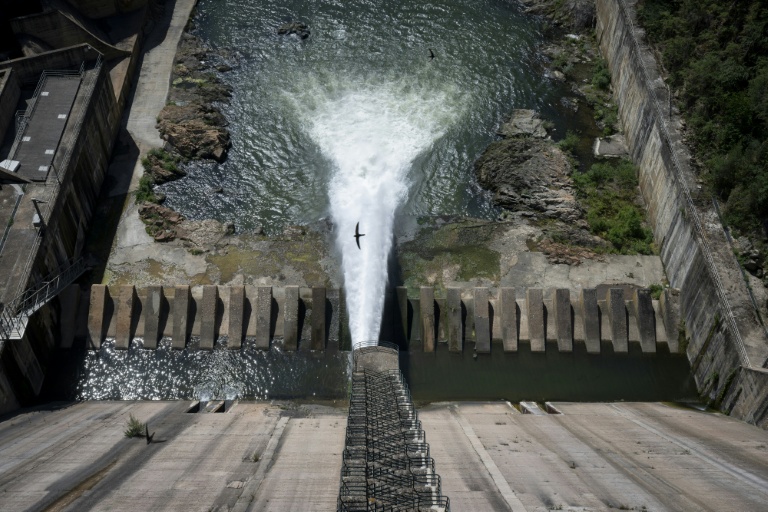Listen to the article
Franco’s Legacy Distorted: Social Media Spreads Misleading Claims About Spanish Dictator’s Achievements
Fifty years after Francisco Franco’s death, a wave of nostalgic disinformation is sweeping across Spanish social media, presenting the dictator’s authoritarian rule in an increasingly positive light. Experts are raising alarms about viral messages that misrepresent Franco’s contributions to Spanish society, particularly targeting citizens with limited knowledge of the 1939-1975 dictatorship.
“There is little knowledge of our history,” explains Jordi Rodriguez Virgili, professor in political communication at the University of Navarre. This historical ignorance, combined with the “very emotional, divisive and polarizing” nature of Franco’s legacy, creates fertile ground for misinformation to flourish.
The nostalgic sentiment is encapsulated in a phrase gaining popularity online: “Life was better under Franco.” But how accurate are the claims supporting this rose-tinted view of the past?
Many Spaniards wrongly attribute Spain’s water infrastructure almost exclusively to Franco’s regime. Rodriguez Virgili notes that this belief “spreads easily because it is a collective myth about which there is huge ignorance.”
The reality is more complex. Plans for irrigation canals and reservoirs existed in the early 20th century, long before Franco seized power. Miguel Primo de Rivera, who ruled Spain from 1923 to 1930, established water management organizations that continue to function today. Franco often merely continued or resumed projects initiated during the Second Republic, which he overthrew in the devastating 1936-1939 civil war that claimed hundreds of thousands of lives.
Matilde Eiroa San Francisco, a history lecturer, adds an overlooked dimension to Franco’s infrastructure projects: many dams and reservoirs built during the dictatorship flooded entire villages and relied heavily on forced labor from political prisoners.
Social media posts frequently credit Franco with establishing Spain’s social security system in 1942, allegedly guaranteeing workers healthcare access and pensions. This narrative distorts a much longer historical process.
Daniel Perez del Prado, secretary general of the Spanish Association of Labour Law and Social Security, points out that Spain’s first social protection measures date back to a 1900 law. Several key benefits predated Franco’s rule: a pension scheme established in 1919, mandatory maternity coverage in 1923, and unemployment benefits introduced in 1931.
Franco’s regime simply consolidated these existing measures under the unified name “Social Security” in 1963, rather than creating them from scratch. Similarly, paid holidays weren’t a Franco innovation—the Second Republic had already granted workers seven days of annual paid leave by 1931. Spaniards only received the right to 21 days of annual paid leave in 1976, after Franco’s death.
Housing represents another area where Franco’s achievements are exaggerated. With Spain currently facing a severe housing crisis, some social media messages claim Franco built four million government-supported homes, while suggesting current Prime Minister Pedro Sanchez’s governments have built none.
Alfonso Fernandez Carbajal, professor in applied economics at the University of Oviedo, challenges this narrative. His research shows approximately 3.4 million government-supported homes were built between 1943 and 1975. However, only 735,400—less than 22 percent—were designated for low-income families.
By contrast, official data shows 66,723 “protected” homes (government-subsidized housing with price controls) have been developed under Sanchez’s governments since 2018. Fernandez Carbajal cautions against direct comparisons between housing policies under dictatorship and democracy, noting that today’s decentralized political system delegates significant housing responsibilities to regional governments—a stark contrast to Franco’s centralized control.
The spread of these misleading claims highlights the danger of historical revisionism in the digital age, particularly when emotional topics intersect with gaps in public knowledge. As Spain continues to grapple with Franco’s complicated legacy, distinguishing historical fact from nostalgic fiction remains crucial to understanding the country’s past and shaping its future.
Fact Checker
Verify the accuracy of this article using The Disinformation Commission analysis and real-time sources.




9 Comments
This is a good reminder that social media can be a powerful vector for the spread of misinformation, especially when it taps into deep-seated biases or political divisions. Fact-checking and critical thinking are vital skills in the digital age.
This is a concerning trend, but not entirely surprising. Social media amplifies the spread of disinformation, especially when it plays into existing biases or political agendas. Rigorous historical education is key to countering these revisionist narratives.
The spread of nostalgic disinformation around Franco’s legacy is concerning. We should be wary of emotionally-charged claims that gloss over the realities of authoritarian rule. Maintaining an objective, evidence-based understanding of history is crucial.
Absolutely, we need to be vigilant against revisionist narratives that whitewash the past. Robust historical education is essential to prevent the normalization of undemocratic regimes.
The article highlights the challenges of combating historical revisionism in the social media era. It’s a sobering example of how easily collective myths can take hold and displace more nuanced understandings of the past.
You’re right, this underscores the importance of media literacy and critical analysis when consuming information online. We must be vigilant against the normalization of authoritarian narratives, no matter how alluring they may seem.
Interesting to see how historical narratives can become distorted on social media. It’s important to critically examine claims about past regimes, even if they seem to paint a more positive picture. Fact-checking and understanding the nuances of history is key.
Interesting to see how nostalgia and historical ignorance can combine to create fertile ground for the spread of misinformation. This is a good reminder of the importance of critical thinking and fact-checking, especially when it comes to complex political legacies.
The article highlights the power of social media to distort historical understanding. We must be cautious of emotionally-charged claims that gloss over the realities of authoritarian regimes. Maintaining a nuanced, evidence-based perspective on the past is crucial.